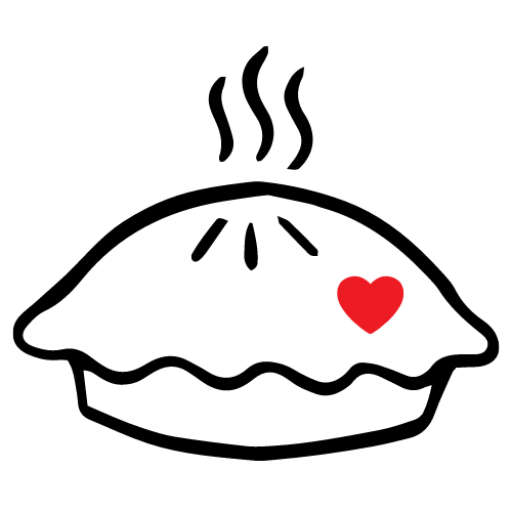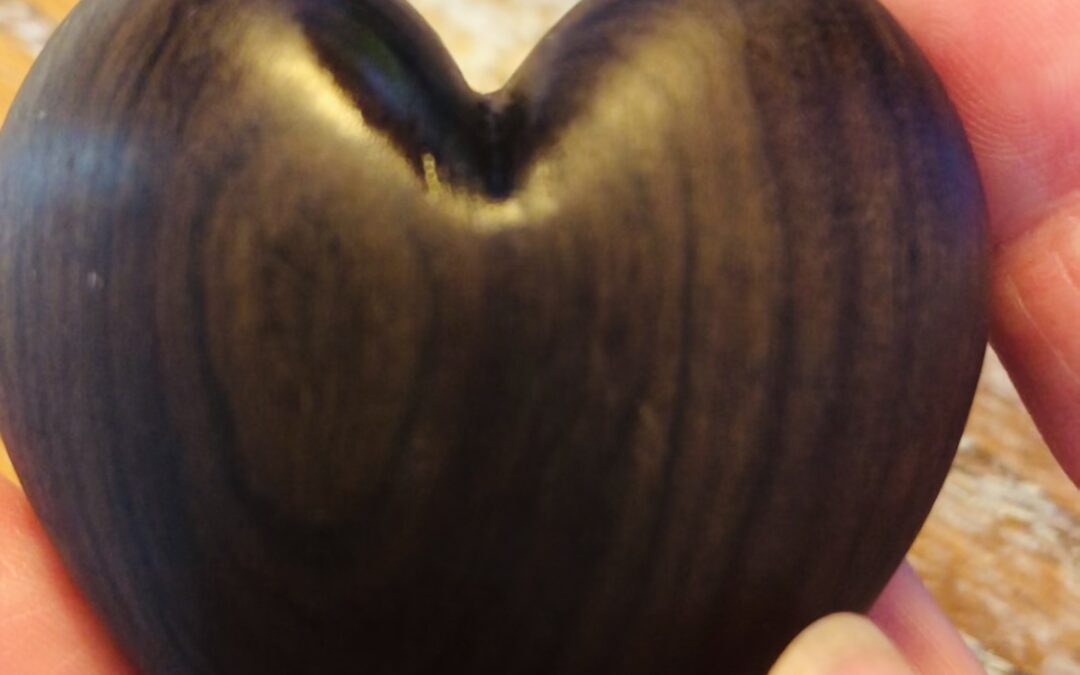
by lisaduchene | Feb 24, 2023
The heart surgeon enters the waiting room wearing a white coat over his blue scrubs and clogs. He sits down across from my mom and I. He begins to explain the work he has just completed on my husband’s heart. His hands are delicate, perfectly clean and free of any callouses, scars or stains. The doctor looks a little tired and very young. Too young to be a surgeon at one of the world’s best cardiac care hospitals.
Yet, I have absolute faith in him and the Cleveland Clinic to take care of my husband, my world.
For the previous six hours, Dr. B. has operated a robot that cut into my husband’s broad, strong chest and reached into his heart to fix a broken valve. Mind-boggling. This valve has been sending 40 percent of the blood pumped through my husband’s heart in the wrong direction, making his heart work extra hard.
He is 52. A good, wonderful, gorgeous man. The rock of our family. The love of my life.
He has been brave and has no choice. If not fixed or replaced, this ruptured valve will kill him in some unknown amount of time.
Dr. B. uses some unfamiliar medical terms, but I get the jist. The repair was tricky and took two attempts. The second time Dr. B. takes my husband off the heart and lung bypass machine and tests his heart, he is pleased with how the repaired valve is working.
All good. This is the best possible outcome, the one we hoped and prayed for.
My whole being exhales in relief. Soon, I see my husband in intensive care, whisper in his ear that everything is OK, he did great and I love him. Back at the hotel, I’ll call the hospital just after midnight for a nurse’s reassurance that he is OK, then sleep a little.
“When I feel grateful, I’m going to then pay it either back to you or forward to someone else. It becomes a reinforcing circle of reciprocal relationships.” –
David DeSteno, professor of psychology at Northeastern University whose research focuses on “moral emotions.” Author of “Emotional Success: The Power of Gratitude, Compassion, and Pride.”
Overwhelmed with Gratitude
In the next few days, my husband heals. He gains strength, walks a little more every day. He does not like to be fussed over, nor the center of attention, so I am cautious.
Nor, frankly, is he thrilled to re-visit such a challenging time, so I must be cautious here, too. He did what had to be done and now it’s over. He moved on.
But this piece is not about him.
Rather, it’s about me: How my profound, deep gratitude for his health in spite of this serious, life-threatening problem propelled me to reflect and dig deeper. To open my mind and heart a little more. To give back.
I feel lucky for the family doctor who caught the problem, and the doctors who fixed the problem. That the Cleveland Clinic, ranked best in the nation for cardiac care, was an option for care, and a convenient option since Cleveland is my hometown and less than a five-hour drive away from our home.
This is not the first time I feel lucky. I have never known hunger or homelessness. My mom insisted on a good education and college options for me — and that I did the work, which I loved anyway. My dad never gave up on making things right between us, which is at the root of our Thanksgiving-in-February story.
Too many others are born into hunger, violence and suffering. I struggle with this disconnect between the relative abundance, good fortune and “first-world problems” of our lives and the suffering outside of our bubble.
I want to end violence, hunger and poverty. Banish racism and hatred in all its forms.
No child should suffer. Ever.
My figurative “bleeding heart”? Absolutely.
Oh — and I would rescue every dog and cat from the shelter.
I am not all-powerful (sigh). I am one flawed human. What can I do?
Swimming in Gratitude
During the days my husband heals and rests at Cleveland Clinic, I am euphoric. Overwhelmed and swimming with gratitude. Floating. Giddy and eager to hug anyone and everyone.
But I don’t hug anyone besides my mom who has sat waiting with me all day, because, well, that would be weird and would slow down these efficient nurses. Plus, we’re all still wearing masks all the time due to COVID. No hugging.
On a warm, September Wednesday afternoon, I drive our VW Jetta west from Cleveland Clinic near downtown toward home in rural, central Pennsylvania, tearing up once again because our hearts have been cracked open. It’s an emotional time. I notice the Terminal Tower in our rear-view mirror, a beloved downtown skyscraper and familiar face on the city skyline I have known since my childhood. My husband naps in the passenger seat.
Thank you and yes. What can I do in honor of this man’s health, our good fortune?
As the miles pass, I catch up on podcasts, selecting one on gratitude and listen to an interview with author A.J. Jacobs, whose exploration of gratitude led him to seek out and thank every person he could find who was responsible for his morning cup of coffee.
Everyone.
He started with the barista, and traveled to thank coffee growers in person and even tracked down a woman whose job is to spray the coffee bean warehouse with pesticide to keep bugs and rats out of the coffee beans — because she, after all, had a hand in creating his morning coffee.
Can you just imagine how many people I should be thanking for my husband’s heart valve repair?
The family doctor who heard the murmur. The company that makes the stethoscope and the inventor of the stethoscope.
Three cardiologists. A whole team of people in the operating room from the anesthesiologist to the nurse stationed near his head who told him everything would be OK, they would get him through this.
The company that makes the little ring now in my husband’s heart to support the valve. The teacher that encouraged the surgeon to pursue medicine. The founders of Cleveland Clinic. The innovator who developed the robotic surgery. The maker of the bed linens. The cooks in the hospital’s kitchen. The factory where the hospital Jell-O is made.
What a gigantic list that would be.
Gratitude into Action
Because wanting to help and give is a common response to gratitude, the researchers tell us. Here’s a piece on the science of gratitude and how being thankful makes us happier.
Even before my husband’s surgery, I’ve found this to be true. It’s a message at the core of Thanksgiving in February: Let’s practice gratitude every day of the year. Let’s do what we can to make peace, to heal what needs to be healed inside our outside of ourselves, to love each other.
I believe we’re called to move beyond gratitude into action.
Since I dream in food, and Thanksgiving and pie, the whole experience planted a seed: To dedicate February to the cause of hunger relief. Not just by feeding a big turkey dinner to our family and friends — as we do over President’s Day weekend — but to hopefully inspire people to donate food and money to relieve the suffering of those who do not have enough to eat.
Before COVID, food insecurity in the US was at its lowest in 20 years — and still, 34 million people, including 9 million children, were food insecure, according to FeedingAmerica.org
And that’s just in the US.
Those are heartbreaking numbers, attached to real, suffering people.
When the mission committee at our church asks for ideas, I mention Thanksgiving in February as maybe a fun theme to rally around the cause of hunger relief. Our local homeless shelter reports February is a tough month without a lot of donations.
We were off and running, starting in February, 2022, when the mission group collected food and paper supplies for the shelter and sold soup on Super “Souper” Bowl Sunday to raise money.
This month, the group planned an entire month of activities: A food and paper goods drive, selling soup on Super Bowl Sunday, washing used pill bottles to be recycled to help get medicine into poor countries, and a Thanksgiving in February community meal. Every Sunday, a member of our congregation talk about what they are grateful for.
My turn is this Sunday. The hard part will be sticking to a minute. I’ll focus on thanking this church family, this group that beautifully works together to give and love.
The things I can do on my own are small and not enough. The one-year anniversary of this horrible, awful war in Ukraine is upon us and makes me shudder.
And — I find comfort in doing a little more, thank you for what you already do — and maybe inspire a little more, a new way to help. What we do matters — hopefully with kindness reaching the heart of another.
Gratitude is active.
Maybe your group or club or family would like to raise money or give food at this quiet time of year? I’d be happy to help and brainstorm ideas. Drop me a line.
For more info and an easy way to donate: Presbyterian Hunger Program.
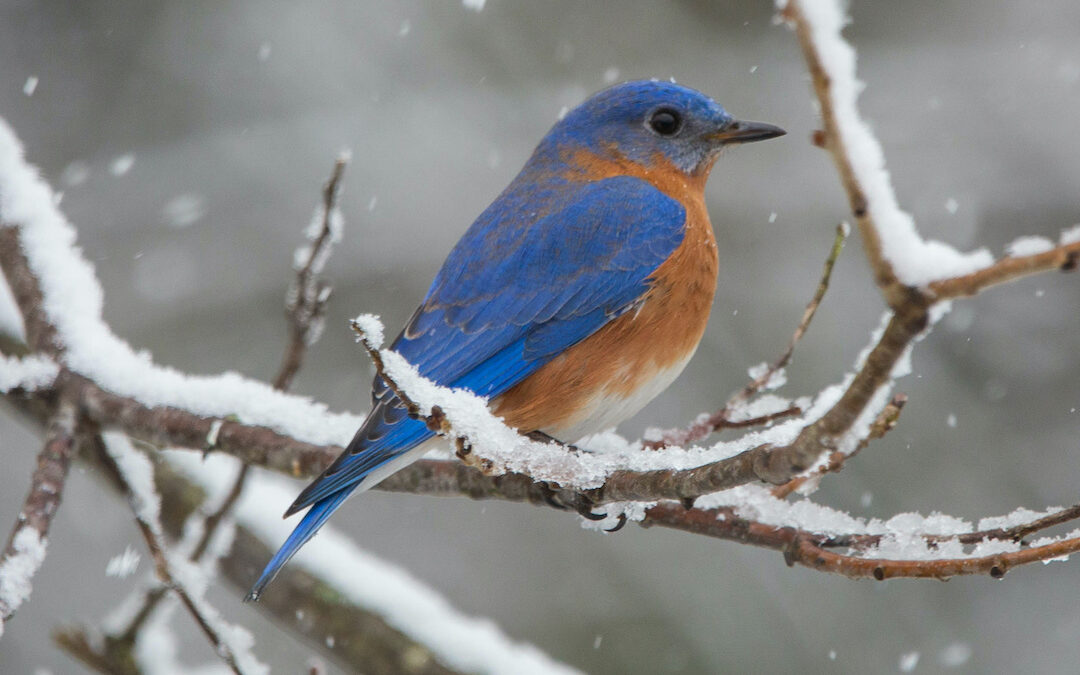
by lisaduchene | Feb 17, 2023
This week, the weather has been mild and the cardinals have been abundant around our neighborhood. A buff-colored female cardinal plucked red berries from the winterberry shrubs outside our window. The red males fluttered in the bare, small trees and shrubs: the lilac, the Rose of Sharon, the crabapples.
Those richly colored feathers, fluttering wings and curious eyes. Nothing freezes me in place and takes my breath away like a bluebird or beautiful red cardinal landing in perfect view outside the window.
“Heaven birds” the boy who lives next door calls the cardinals. Little signs that our loved ones are OK.
Here is a story about a whole flock of bluebirds feasting on the berries in February 2021, bringing their inspiration and magic right up to the kitchen window.
That winter, they provided an especially comforting connection.
Sharing a Winter Feast with Hungry Visitors
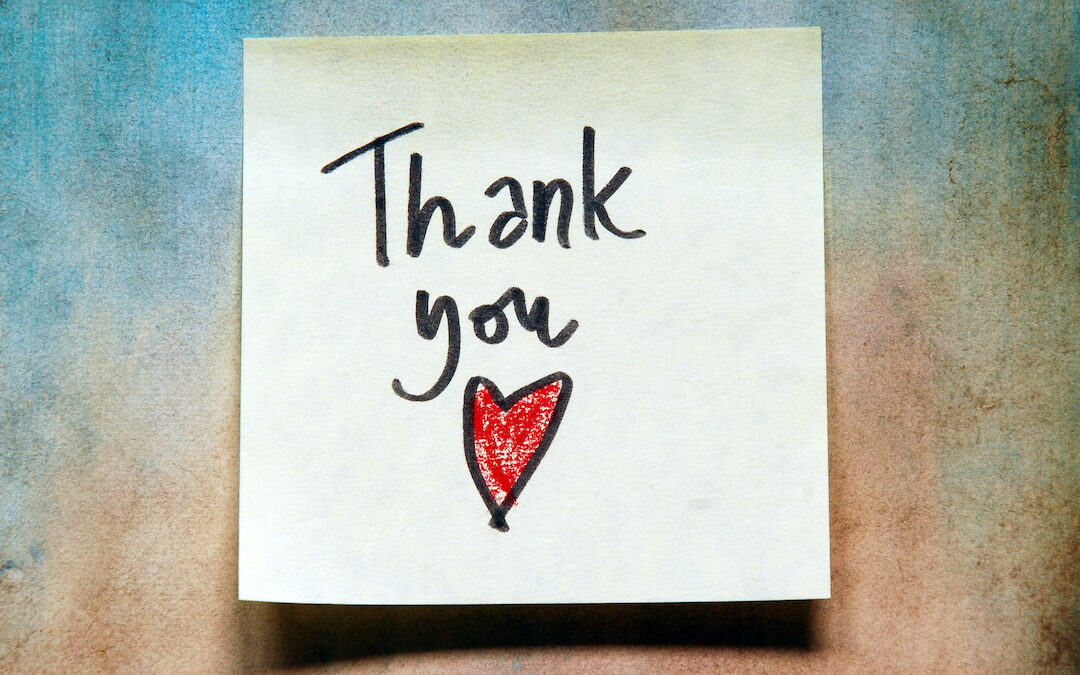
by lisaduchene | Feb 10, 2023
One of the ongoing conversations I have with God is “Thank you and YES.”
Let me explain.
As I fell in love with my husband, I wasn’t sure I was “ready.” Not quite a year had passed since separating from my ex. (Fifty-one weeks, to be exact.)
After waiting decades for the real deal, the love of my life, the great love that would sweep me off my feet — it all seemed to happen so fast. Not willing to let him go, I scrambled to keep up.
Only five or six weeks passed between when I met my husband at a Halloween party and when I met his two teenage sons — now my stepsons, our sons — in early December.
A few weeks later, I spent entire Saturdays and three or four nights a week at wrestling matches and basketball games, watching the boys compete. Soon, I spent entire weekends at the “Man Cave.” It was a very different, kid-focused life compared to my former adult life, half of which I spent as a single writer and all of which I had lived without children. Yet, wishing for a family someday.
Stepping Up
This new life just felt good and right. Lots of goosebumps and sparks. I was never so sure of anything. So I felt grateful. That’s the “thank you” part.
Still — there was a lot to be nervous and anxious about: Would we all get along? What if the boys never accepted me? I’d grown up an only child raised by a single mom. How was I going to relate to teenage boys? Could we function well and be a family unit?
And I’m so squeamish and claustrophobic: Would I be able to watch so much wrestling?
Yes, I could. Because at that time, wrestling mattered so much to my stepson, so it was an important way to show him I cared. In time, I came to respect the sport for what it demanded of and taught a kid, but it never became comfortable to watch one kid contort and immobilize another. My stomach knotted, worried he would be hurt. Still, I watched and cheered.
Being a stepmom means to step up, to work through the rough patches and figure it out. Not simple. Not easy. Often, I came to think of the job as the mortar in-between bricks or spray-foam filling that gap in the wall. The building blocks and foundation were in place and my job was to fill in as needed.
That’s the “yes” part: I’m here and willing to do what needs to be done.
A Mantra Through Fear
In the summer of 2021, when we learned my husband would need heart surgery, I said “thank you and yes” dozens of times a day, a mantra to focus myself on what mattered most. To pray through my fear.
Thank you for the doctor who heard an odd heart rhythm and sent my husband for a test, catching a problem before it was too late. We were so lucky.
Yes, I will do whatever needs to be done: Advocate for the best care, be with him through all the medical visits, talk it all out with him — and take care of whatever he’ll let me do. My husband does not like to be fussed over.
When he was OK after open-heart surgery, I floated, giddy and overwhelmed with gratitude.
Thank you and YES!
A Powerful Shift Toward Peace & Grace
Gratitude has become a prayer and pivot point for me.
A powerful shift in perspective that worked well for me even before our quirky little family Thanksgiving dinner in the middle of February. That story’s message, its nudge toward gratitude in the dark and difficult times, is one reason it has stuck with me.
Gratitude gets me unstuck. Gratitude propels me forward, to the next good step. And then the next one.
When I pause to appreciate the good and beautiful in a moment, a day, a person, a relationship, even a lifetime, a powerful shift toward peace and grace occurs.
Sometimes, that shift immediately feels good. Sometimes, it’s too teensy to notice. Yet, I trust that magic is quietly working — both in my life and out into the world.
When I feel better, I am kinder and gentler. Never perfect, mind you, but … better.
Since kindness leads to more kindness and love leads to more love, then isn’t gratitude — along with joy, peace and hope — its own act of resistance against the darkness in the world? I believe so.
The Danger of Forcing Gratitude
Yet, we must be careful. An effort to focus and appreciate what’s good, beautiful and working is not a cure-all. It does not erase pain. We still have to work through the painful parts of our lives.
Calling out the good, the “silver linings” in the life of someone in pain is unkind, I believe. We cannot force gratitude on others.
Rarely do I hear any of the words that follow ““You should …”
Recently, I spotted a quote that suggested a gratitude practice helps you savor the good times, and cope through life’s most painful stretches, reminding you that they will ease in time.
That’s been true for me.
A gratitude practice is simply to pay attention to whatever is good, beautiful and working for you on a regular basis. Some people note what they are grateful for in a journal. Some people post what they are grateful for on their social media pages. Maybe you already do this? Would you share it? Just leave a comment about your ritual.
On most days, I write in a journal. For me, that practice is a form of prayer that includes a “thankyou” that my husband and our immediate family — now including two daughters-in-law and a grandson — are safe and healthy, and a “yes.”
Yep!
I am here, asking for strength and trusting it will come so I can do what needs to be done.

by lisaduchene | Feb 2, 2023
What is the first thing you say to yourself every morning? Is it kind? Here’s why it matters.
New Year’s resolutions feel like a setup, so I no longer make them.
But somewhat accidentally, over these first four weeks of the year, I adopted a new morning habit that stuck.
When I face the mirror first thing, I think: “Hellooooo Baby!”
Sometimes I just think it. Sometimes I whisper or say it quietly.
I always hear it the way Sammy Hagar or the Big Bopper crooners would sing it: With those middle two syllables in a deep bass tone and the last flying high. Sammy added a rocker shriek at the end.
Sometimes I forget and quickly catch up in the mirror in the mudroom on my way out the back door with the dogs.
Always, this silly little habit makes me laugh at my reflection, which smiles back at me. Maybe even giggles. It’s a pretty great way to start the day. Even when I wake up grumpy, this has been making me smile.
Smiling at the Sight
I read about a man who greets himself in the mirror every morning by saying “Heeeeey Buddy!” with warmth and enthusiasm. He is the husband of a friend of former First Lady Michelle Obama, who wrote about his ritual in her new book “The Light We Carry.”
At first, it seemed a little silly, and reminded me of Saturday Night Live character Stuart Smalley played by Al Franken, delivering daily positive affirmations and motivational messages into the mirror.
But then I read more.
The man’s wife says hearing him say this out loud every morning is the best way to wake up. (No report from my husband, who wakes up earlier and has yet to hear me whispering into the mirror.)
Obama’s essay then dives into this man’s choice to begin his day with kindness toward himself. She explores why the way we greet ourselves, our spouses and our children matters so much. Halfway through, I’m enjoying the book, as I did her first memoir. Both were Christmas gifts from my husband.
This daily habit is about love. Love for ourselves and a daily reminder to be sure the people we love know how much we love them by the expression on our face the instant we see them.
That’s how I fell in love with my husband the first night we met. I’d asked him about baseball. When he told me both his boys play, his face lit up. Done deal.
Doesn’t it feel great when someone’s face brightens when they see us? Why wouldn’t we want to be sure to give that to the people we love? To ourselves, too.
Obama quoted the late author Toni Morrison: “When a kid walks in the room, your child or anybody else’s child, does your face light up? That’s what they’re looking for.”
Morrison recalled looking at her own children when they were little to see if their clothes were buttoned, socks on, hair combed. These things all matter, just not as much as the expression on your face that the child sees, she says, and what that tells that child about what they got wrong instead of what they got right.
“You think your affection and your deep love is on display, because you’re caring for them,” Morrison said. “It’s not. When they see you, they see the critical face. What’s wrong now?”
Reflecting What’s Right
We are all bombarded with criticism and judgment, and it never feels good to be criticized or judged. (Held accountable? Yes.)
Judgment is separation from love, writes Gabby Bernstein in her book Judgment Detox, which makes a lot of sense to me. Here’s a piece I wrote about judgment and that book, and one about my own misjudgment of a very important person, Ms. Judgment. I was wrong.
I want my loved ones to feel loved the second we see each other.
So I’m making an effort to shift my focus to the joy I feel when I see my husband, or one of our grown kids (my two stepsons and two daughters-in-law) or our baby grandson.
I’ve caught myself greeting them with a face of slight panic because of my own self-criticism of what isn’t done. What isn’t ready. What’s still wrong. The house is not ship-shape or the vacumming isn’t done. Let’s be real: In this house — an old, cherished, fixer-upper with two dogs and the workspace of a creative who would rather be writing or building out content — the vacuuming is never “done” for more than five minutes.
Instead of my stress, I want them to see my face light up with love for them.
Because that’s a true expression of what I feel for them: Love. Joy that they are here now, and I’ll get to share some time with them. Relief that they are walking through the door, home safe.
Facing Down the Inner Critic
If you think about it, why wouldn’t we extend that love and kindness to ourselves?
We, especially women, are so used to looking in the mirror and critiquing our appearance. The hair. The makeup. The wrinkles. Our bodies. Don’t get me started …
We’ve absorbed this toxic crap from the culture. And we have the power to stop it, too. Do we really want to pass that onto our daughters and nieces and grand-daughters?
Do we really want to start our day on a critical note? To open the door to the inner critic?
Unchecked, that inner critic can do some real damage. “Negative self-talk” is “any inner dialogue you have with yourself that may be limiting your ability to believe in yourself and your own abilities, and to reach your potential,” according to this 2022 piece in verywellmind.
This 2020 piece in Psychology Today, “The Destructive Nature of Negative Self-Talk” describes the damage with some tips like becoming more aware and finding ways to move the inner conversation to a more neutral state, breaking the cycle.
It asks: “Can you develop a mantra you like, a poem, saying, or words from a song that comfort and inspire you?”
Maybe I did, thanks to Mr. “Hey buddy!” in Obama’s book.
Good Enough
I settled on “Hellllloooooo Baby!” because that’s how rock singer Sammy Hagar begins Van Halen’s album 5150. Those four syllables transport me back to being 16 years old, listening to Van Halen’s new album, through headphones on my Walkman and riding my blue 10-speed bike as fast as I could over to my best friend Linda’s house to hang out.
I still know every word to every song of that 5150 album. Every single note. “Dreams” was our high school senior class anthem. All these years later, “Hellooo Baby!” is how Linda and I greet each other, whether by voice or text.
Later, I’ll tell my Dad about this and he’ll say that’s from the Big Bopper in the ‘50s. But I will not believe him. I will not believe anyone but Sammy Hagar could possibly have sang it first — until today when I looked it up on YouTube.
For a few seconds each morning, I channel my coming-of-age mind full of time and dreams and possibilities.
My 52-year-old face can’t help but smile or laugh back, and lights up at the memory and silliness of the moment — a safeguard from eyeing wrinkles or taking myself too seriously and plunging into the to-do list instead of how beautiful the light is this morning.
Then — no matter how many different directions these wild and wavy silver hairs are going, or how many little lines I can count at the corners of my eyes, I see my essence. Light, life and sparks in my eyes.
I see a happy, content soul. Wiser now.
Still pedaling, not quite as fast, chasing dreams, eager to get a little closer today.
Many miles to go.
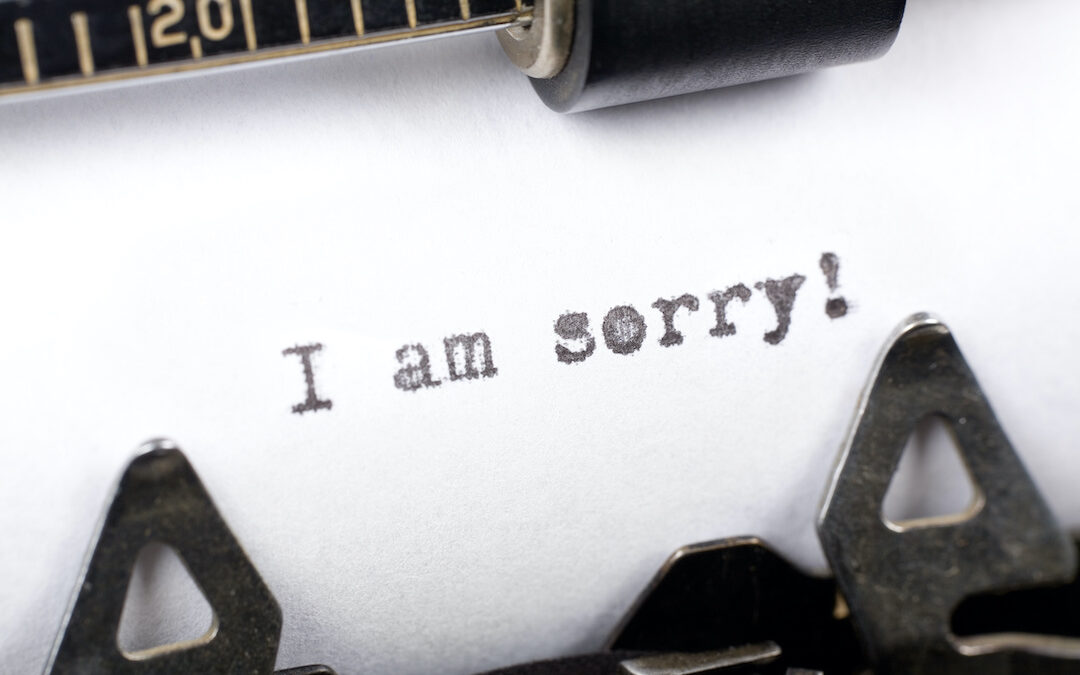
by lisaduchene | Jan 20, 2023
I am sorry. Three words that can turn a relationship around.
My Dad died 10 years ago this month. To reflect on that milestone, I headed for the woods with our dogs on a mild winter morning.
Our relationship was strained for decades. We barely spoke for a decade. As I grew up, he was mostly absent — but not really gone. Yet, there were stretches and glimpses of the good, loving father he could be. I loved him. I missed him. And I had a lot to be angry about.
Over several years in my 20s, we rebuilt and made our peace — which is the signature personal story at the heart of this ever-growing collection of stories about seeking peace.
Here is another favorite story about a lovely Christmas visit soon after we reconciled: O Holy Night.
This one is about how unexpectedly helpful he was when he visited following my separation at 40 from my ex-husband: How One Tiny Home Repair Comforted a Broken Heart.
After we rebuilt, we had 15 years of a fairly healthy, father-daughter relationship before his death. Quirky because I could easily slip into the parent role. Healthy — and sometimes painfully honest — because we would say anything to each other.
Necessary, just not always pretty.
What now? Ten years after the end of an almost 65-year life of a charming, endearing and often infuriating man, what is there to say? After years of a “final” chapter of grief, what does it all come down to? The lesson?
Comfort on the Trail
I wondered about that while walking with our shelter mutts — a nosy beagle mix and our big, chestnut mix of lab-pit-boxer-and-maybe-something-else — on a favorite streamside trail below the tall hemlocks and tulip trees.
We went to my little “fortress of solitude,” a stone and wood picnic shelter built into the side of the ridge at our state park, where there is no cell or internet service. Free from interruption. I come here sometimes to sit and think, or write or work.
In this place, in my mind’s eye, I always see my stepsons shaking hands with my Dad.
Here, in 2012, my Dad and two stepsons met at our family picnic and had their only conversation. My Dad, sick from a chemo treatment just a few days before, willed himself to ride in the car for more than four hours each way to be there that day.
On the way to that chemo treatment, we’d had a blowup. A big, awful one that makes me wince when I recall it. We had patched it up — but I still wish it had not happened. He died five months later.
As the dogs and I walk the path this mild, January morning, crossing the road and looping back toward the lake, what keeps bubbling up in my mind is “I am sorry.” Perhaps that’s the most important lesson of our story.
“I am sorry” changed everything.
Standing my Ground
When I was 20 and home from college for the holidays, my mom cooked a special dinner for my Dad, my sister (technically half-sister as we have different moms, but we have always called each other “sister”) and I.
Hosting a special dinner was my mom’s way to take care of us. She wanted to be sure we saw our dad, who was divorced from both of our mothers, over the holidays.
I’d been away from home long enough to stand stronger, if not entirely yet, on my own two feet. I was finding my voice. That night at dinner, he pushed me too far and I pushed back, and stood my ground. We didn’t dig into the big, thorny stuff, just the smaller, inconsiderate things he would do like relentlessly tease and call late at night.
It was a start.
My sister, 10 then, watched with her big brown eyes, then calmly, softly agreed the late-night phone calls were not welcome. Could he please not call after 9 p.m.?
He could have blown up and stormed off. We’d all seen him do that before.
But he didn’t.
I’m sorry, he said. I’ll do better.
Turning Point
That started to change everything.
Reconciling took years. Maybe even much of the next decade. But we reached a peaceful place. In time, he apologized for the big things, too.
But the first step was “I am sorry” at that holiday dinner my mom had cooked. We would call that dinner the “dad bash dinner” and celebrated it every holiday season for about six years. He’d ask about it in November.
A sincere “I am sorry” in that moment meant he acknowledged my pain and hurt feelings and took me seriously — instead of talking louder over my distress or changing the subject. It was an expression of love. And it softened me.
“I am sorry” meant he regretted that he had hurt me — even if it was only a seemingly small thing like upsetting me before bed. Even if he had some unknown reason or explanation that justified the late-night call.
“I am sorry” opened the door, and kept me hopeful.
So now, I’m deep within writing an essay about that dinner and its turning point, and that took me to my first memory of being three years old and standing up to him — because writing takes you into places you needed to go that weren’t on the schedule.
I’m not quite back from that place, yet. And that piece isn’t quite ready yet. Soon.
How we Heal
Meanwhile … just about everyone I talk to has experienced estrangement on some level in their family. And everyone knows about the rocky patches in our relationships. We all mess up. We all make mistakes big and small.
I’m no expert or family therapist.
But I can tell you that “I am sorry” can change everything and start melting that icy wall. And if we want a relationship to be different, maybe we have to look hard at how we got to that broken place from the other person’s point of view and think about what we need to say “I’m sorry” for.
Then say it.
And mean it.
Thank you to my Dad for never giving up, for sticking around and — eventually — hearing me. For a sincere, powerful apology.
Me too. I am still sorry for my harsh words on the drive to chemo that awful summer morning, when we were both so scared. By the end of the day, we’d both apologized. Just two days later, he fought through the nausea to make the drive out to the first summer picnic my future husband and I hosted.
He saw the people and place I’d fallen in love with, and that day made a memory that all these years later, still brings me great comfort.

